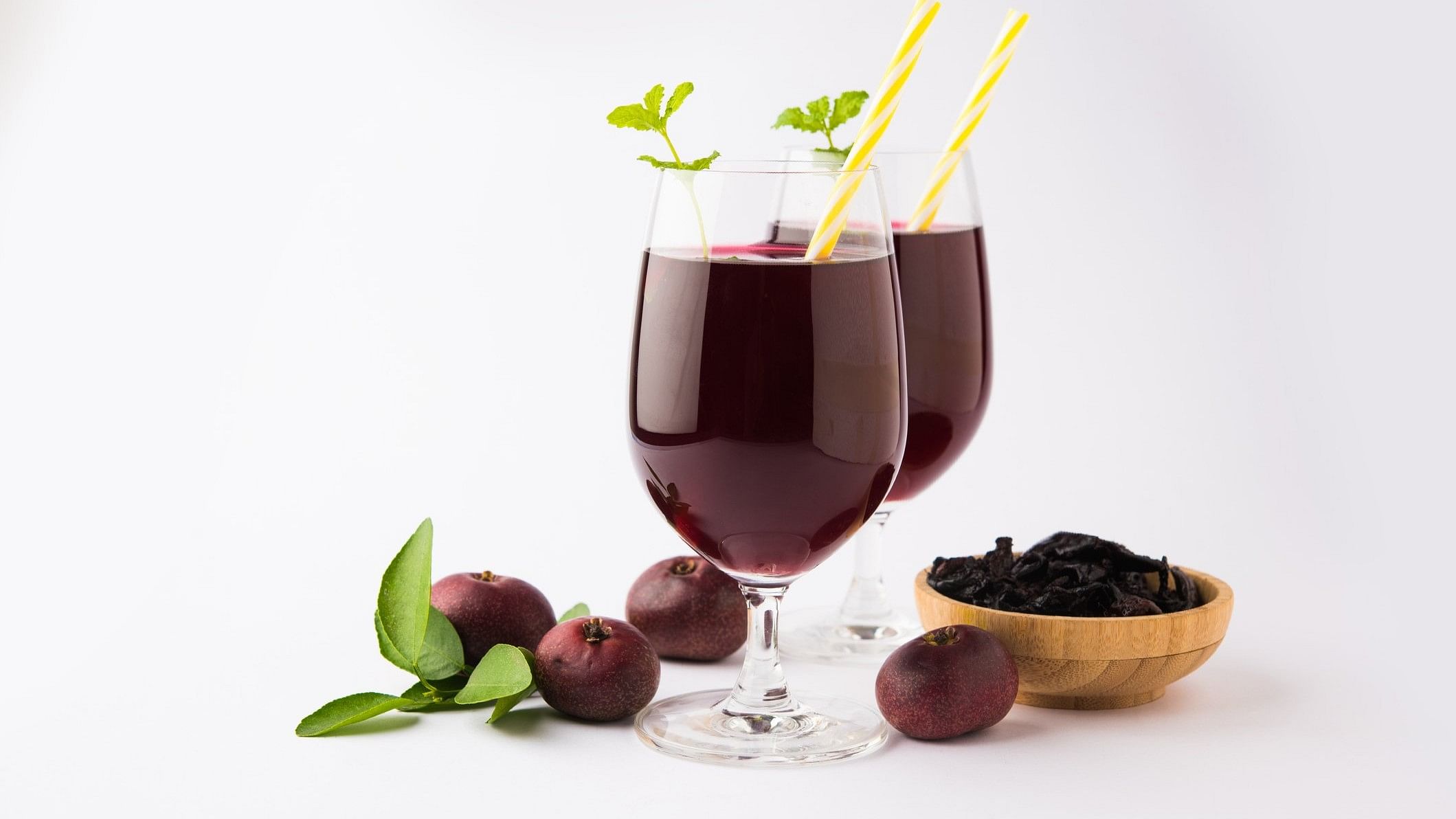
Credit: iStock.
Kokum, scientifically known as Garcinia indica, holds a significant place as a native fruit of India. Known by various names in different regions — such as the Goa butter tree or kokum butter tree in English, Bheranda in Marathi, Vrikshamla in Sanskrit, Punarpuli in Tulu, and Murgal masala in Tamil — it primarily thrives on the Western coasts of India.
This fruit is rich in essential nutrients like vitamins (especially vitamin C), calcium, iron, and potassium. All parts of the kokum fruit, including the fruit itself, the peel, and seeds, offer numerous health benefits.
The dried peel of the fruit is particularly valued as a flavouring agent in curries.
Dried kokum has a tangy taste, imparting a sweet tangy flavour and a lovely pinkish-purple colour to dishes. Because of this, it is widely used in culinary preparations — often as a substitute for tamarind — for fish pickling (known as Colombo curing), in exotic beverages, pickles, curries, and wine.
Kokum is also utilised in cosmetics and holds significant importance in Ayurveda due to its wide range of therapeutic uses.
Nutritionists highlight kokum’s significant property in aiding weight loss.
The fruit contains hydroxycitric acid, which helps reduce the body’s fat production and assists in burning excess fat.
Kokum is also renowned for its anti-inflammatory properties, which can help alleviate pain and swelling caused by arthritis or other inflammatory conditions. It contains antioxidants that protect the body from oxidative stress and cellular damage caused by free radicals.
Known as a traditional remedy for acidity, another benefit of consuming kokum is its ability to aid digestion. Kokum also reduces inflammation in the stomach lining and prevents ulcer formation.
It’s loaded with benefits
There are plenty of benefits of consuming kokum:
Weight loss: Kokum aids in weight loss by reducing fatty acid production and increasing the secretion of serotonin, a hormone that suppresses appetite.
Blood sugar management: Kokum juice helps manage blood sugar levels by increasing insulin secretion due to its anti-diabetic and antioxidant properties.
Diarrhoea control: Kokum’s Kashaya (astringent) and Grahi (absorbent) properties help control diarrhoea.
Skin health: Kokum keeps the skin young and supple by inhibiting the activity of elastase.
Gastric ulcer management: Oral consumption of kokum may be useful in managing gastric ulcers due to its anti-inflammatory and antimicrobial properties.
Heat relief: Drinking kokum juice helps against excessive heat and relieves sunstroke.
Wound healing: Kokum helps in the quick healing of wounds, decreases swelling, and restores normal skin texture.
Anti-ageing: Kokum oil’s antioxidant properties help reduce wrinkles and delay signs of ageing.